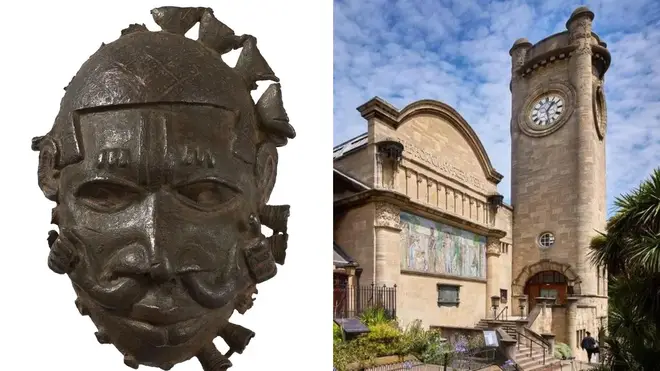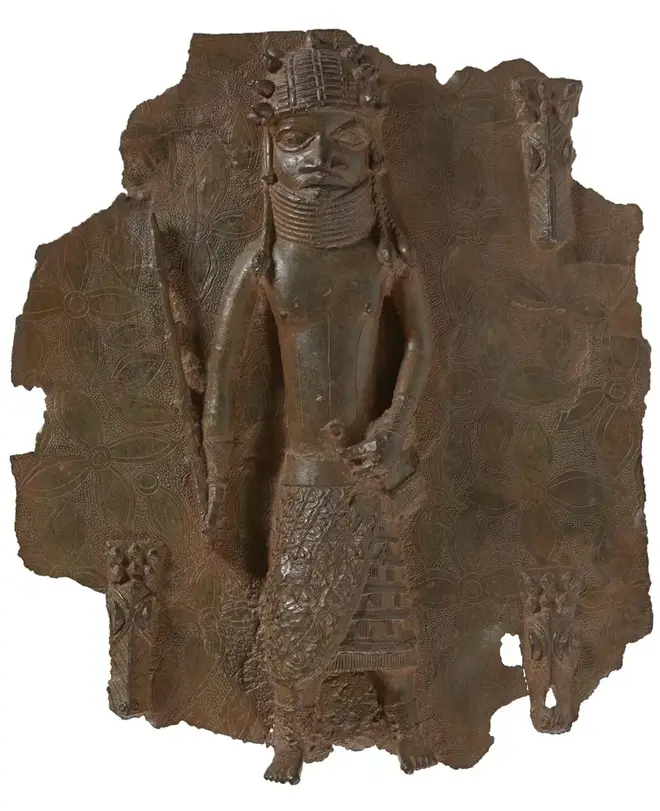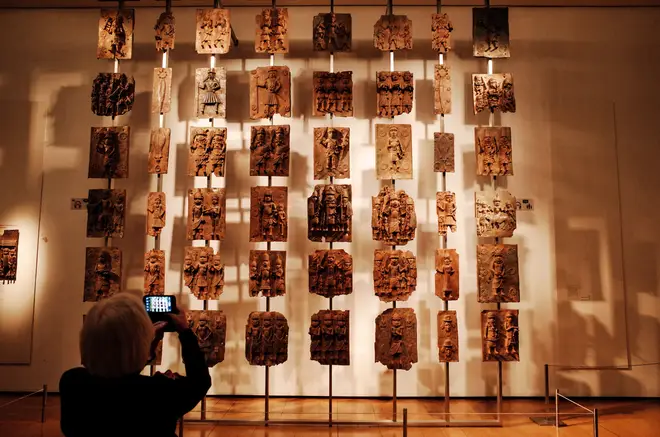
James O'Brien 10am - 1pm
29 November 2022, 00:10

A south-east London museum is returning dozens of Benin Bronzes to Nigeria, where they were stolen more than 120 years ago.
The Horniman Museum in Forest Hill is giving back its collection of 72 of the bronzes, which were taken by force from Benin City, in what is today Nigeria, in 1897.
The director of the museum, which handed back the bronzes to the Nigerian government on Monday, said it was "a moral and appropriate" gesture.
But the Horniman's collection is only a small fraction of the thousands of artefacts held in museums worldwide, including the British Museum.

National institutions in the UK, like the British Museum - which has more than 900 bronzes - are bound by law from 'deaccessionising' artefacts.
Asked by reporters about the British Museum on Monday, Horniman director Nick Merriman said: "Journalists who ask me about the Benin return always want to ask me about the British Museum.
"I would rather talk about what an excellent example the Horniman is rather than answer questions about the British Museum."
The six objects - selected in consultation with the NCMM as being representative of the collection of 72 items - form the first wave of physical repatriation of Benin objects from the Horniman.

Iain Dale clashes with this caller over whether the British Museum should return artefacts
A new agreement between the National Commission for Museums and Monuments (NCMM) and the Horniman will allow the remainder to stay in the UK on loan for now, with a second phase of physical repatriations to follow in due course.
Professor Abba Tijani of NCMM later explained that about 5,000 Benin bronzes are currently "scattered" around the world.
He is hoping that talks with various institutions may result in deals that could herald the items being returned from places including Germany and the US.
The six returning objects from the Horniman Museum are:
Museum founder Frederick Horniman bought the ivory objects and the wooden frame from Mr WJ Hider, CBS Royal Navy, in March 1897.
Mr Hider accompanied General Rawson's military incursion into Benin City in February 1897, and was personally involved in the looting, the museum said.

Professor Tijani later said he does not go to the British Museum to see the treasured artefacts there because that process "is giving me high blood pressure".
He added: "I keep on appealing to them to really look at this (return of items) and let us discuss.
"At the end of the day they will still have some objects on loan which they will continue to display.
He said he feels a sense of "relief" when he looks at the Horniman objects that are being returned.
Prof Tijani said: "I feel that the right thing has been done and the Benin people and Africa have the opportunity to see and interact with these objects that they have not been able to do for many decades."
He noted that "if this invasion had not taken place, these objects would still be in Nigeria".
These objects were "illegally taken out" of the Benin kingdom at a time when it was a sovereign entity and is now part of Nigeria.
Read more: Britain and Greece could strike 'deal' to share Elgin Marbles, George Osborne tells LBC
Read more: Museum advertise for £35k-a-year 'social justice champion' to 'decolonise artefacts'
The nation has asked for the stolen artefacts to be returned and the institutions who have them should "do the right thing" and send them back, he said.
Prof Tijani added: "What is the benefit to Nigeria? What is the benefit of this to humanity? We are not looking at monetary value. We are not looking at what will be accrued.
"We are looking at them doing the right thing and (for us) to continue our collaboration.
"These objects are going to be there in Nigeria for people to have the opportunity to understand and learn of their heritage and about their past. If there are any individuals who are associated with this history or heritage, of course, they will feel that the right thing has been done."
The Department for Digital, Culture, Media and Sport said that some museums like the British Museum are subject to legislation which prevents them from permanently removing or deaccessioning items from their collections, whereas others, which are charities such as the Horniman, are allowed to do so.
A spokesman said: "Museums and galleries in the UK operate independently of Government. Therefore decisions relating to the care and management of their collections are a matter for the trustees of each museum.
"The Horniman Museum and Gardens is not prevented by law from deaccessioning items, so it is up to the trustees of the museum to decide on their collections."